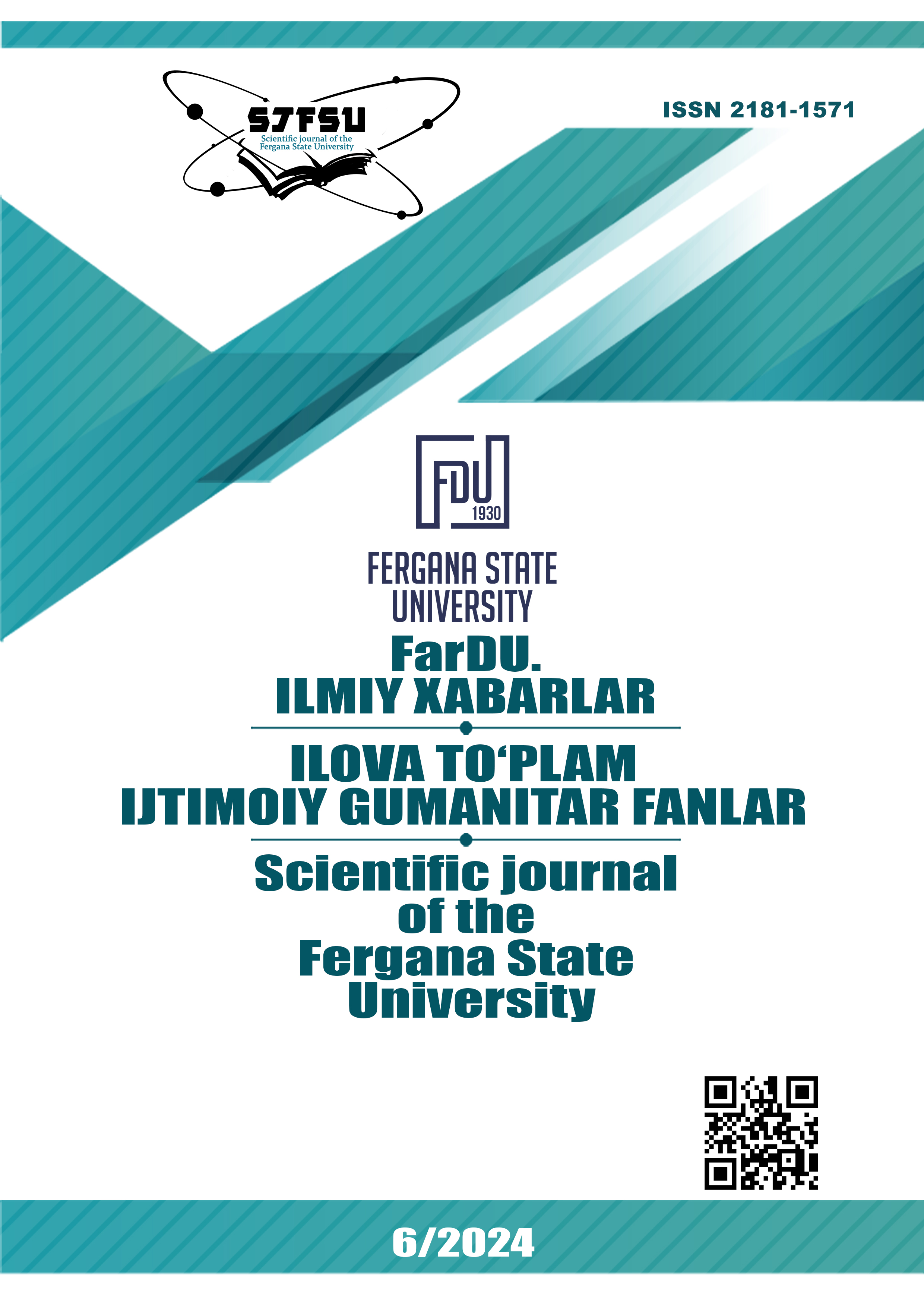TYPES OF WH-EXCLAMATORY SENTENCES IN ENGLISH AND THEIR SYNTACTIC FUNCTIONS
Keywords:
exclamatory sentence, syntactic function, nominal predicateAbstract
Communication is, first and foremost, an exchange of emotions, which can also serve as a motivating tool to initiate, continue, or stop communication. Accordingly, the study of "emotions" is also crucial from a pragmatic perspective, for example, in conducting conflict-free and dispute-free dialogues or in influencing listeners during a conversation. Since emotional impact in speech is embedded in the lexical and syntactic means of any language, the rapidly developing fields of text linguistics and pragmalinguistics demand the study of the unique characteristics of dialogic speech.
The article thoroughly examines and interprets the types of sentences expressing emotions in English. Exclamative sentences belong to the earliest forms of speech that appeared in human history. Perhaps this is what makes their study so interesting.
References
. Ch.C. Fries/ The Structure of English. N.Y., 1952.
D.E.Elliot/ The grammar of emotive and exclamatory sentences in English 1974 p 9.
I. Kunihiko, N. Heizo/ Gendai no Eibunpo 5, Kenkyusha, Tokyo 1978
P. Collins/ Exclamative clauses in English 2005
Downloads
Published
Issue
Section
License
Copyright (c) 2025 Scientific journal of the Fergana State University

This work is licensed under a Creative Commons Attribution-NonCommercial-NoDerivatives 4.0 International License.
How to Cite
Most read articles by the same author(s)
- Khasanova Dilorom To‘ychiyevna, Askarov Ibroximjon Raxmonovich, Yulchiev Asilbek Baxtiyarovish, PRODUCTION OF YOGURT ON THE BASIS OF EXPRESSED WHEAT MALT , Scientific journal of the Fergana State University: No. 3 (2024): FarDU.Ilmiy xabarlar jurnali (Aniq va tabiiy fanlar)
- , ANALYSIS OF SPECIFIC CHARACTERISTICS OF PLANKTON ORGANISMS , Scientific journal of the Fergana State University: No. 5 (2023): FarDU ilmiy xabarlari jurnali (Aniq va tabiiy fanlar)
- , , , , LIST OF CLADOCERA (CRUSTACEA: BRANCHIOPODA) OF THE FERGHANA VALLEY , Scientific journal of the Fergana State University: No. 2 (2024): FarDU.Ilmiy xabarlar jurnali (Aniq va tabiiy fanlar)
- , , , PHENOLIC SYSTEM IN THE PROTECTION OF PLANTS CANNABIS SATIVA L. FROM HEAVY METALS IN SYRDARYA REGION , Scientific journal of the Fergana State University: No. 3 (2022): Scientific journal of the Fergana State University
- , EXPRESSION OF INTERJECTIONS IN ENGLISH AND UZBEK , Scientific journal of the Fergana State University: No. 3 (2024): Scientific journal of the Fergana State University. Application set (Social humanities sciences)
- , SYSTEMATIC ANALYSIS OF THE ALGOFLORA OF THE SOUTH FERGANA CHANNEL IN THE 2023 SUMMER SEASON , Scientific journal of the Fergana State University: No. 6 (2023): FarDU.Ilmiy xabarlar jurnali (Aniq va tabiiy fanlar)
- Muradulla Normuradov, Quvondiq Dovranov, Asilbek Qodirov, Dilnavoz Normo’minova, FORMATION OF NANOPHASE CU15SI4/SI FILMS ON THE SILICON SURFACE AND THEIR ELECTROPHYSICAL PROPERTIES , Scientific journal of the Fergana State University: No. 1 (2025): FarDU ilmiy xabarlari jurnali (ANIQ FANLAR)
- , NATURAL AND GEOGRAPHICAL DESCRIPTION OF THE SOUTHERN FERGANA CANAL , Scientific journal of the Fergana State University: No. 6 (2024): FarDU.Ilmiy xabarlar jurnali (Aniq va tabiiy fanlar)
- Boxadirovna, Olimjon o‘g‘li, THE CONCEPT OF INTERNAL FORM IN WORD FORMATION: LINGUISTIC, ETYMOLOGICAL, AND COGNITIVE PERSPECTIVES , Scientific journal of the Fergana State University: No. 3 (2025): FarDU.Ilmiy xabarlar jurnali (Filologiya)
- Asilbek Mo‘ydinov , THE SOCIO-PHILOSOPHICAL INTERPRETATION OF THE CATEGORY OF SPIRITUAL PRACTICE , Scientific journal of the Fergana State University: No. 5 (2025): FarDU. Ilmiy xabarlar jurnali (Ijtimoiy gumanitar fanlar)

